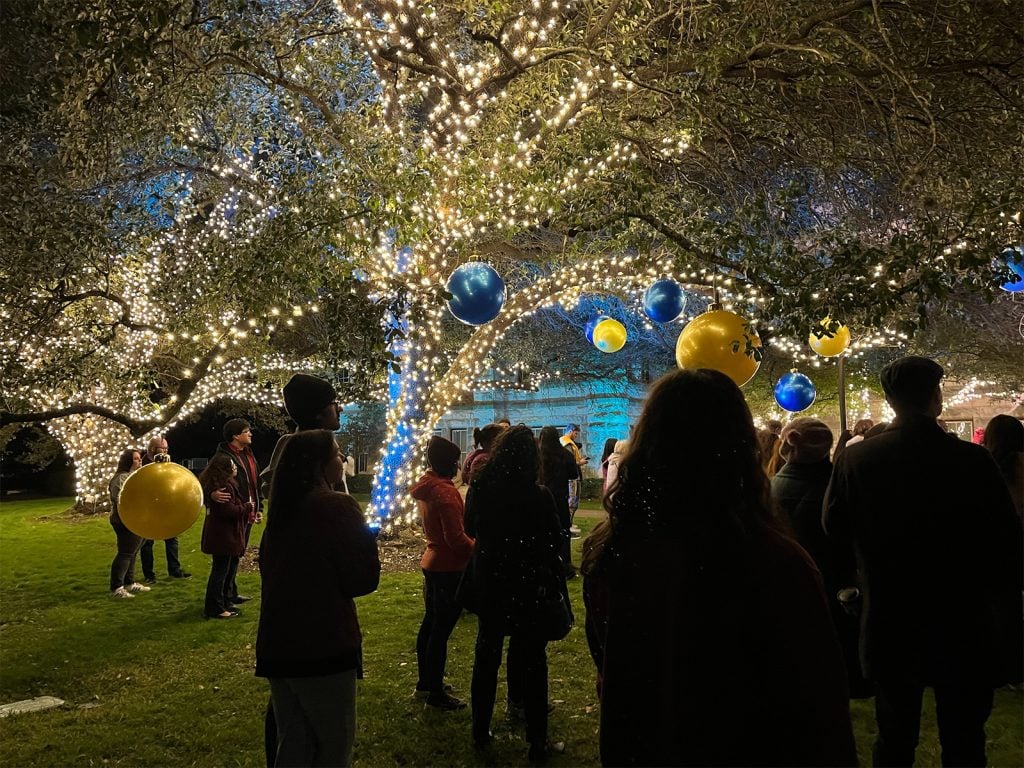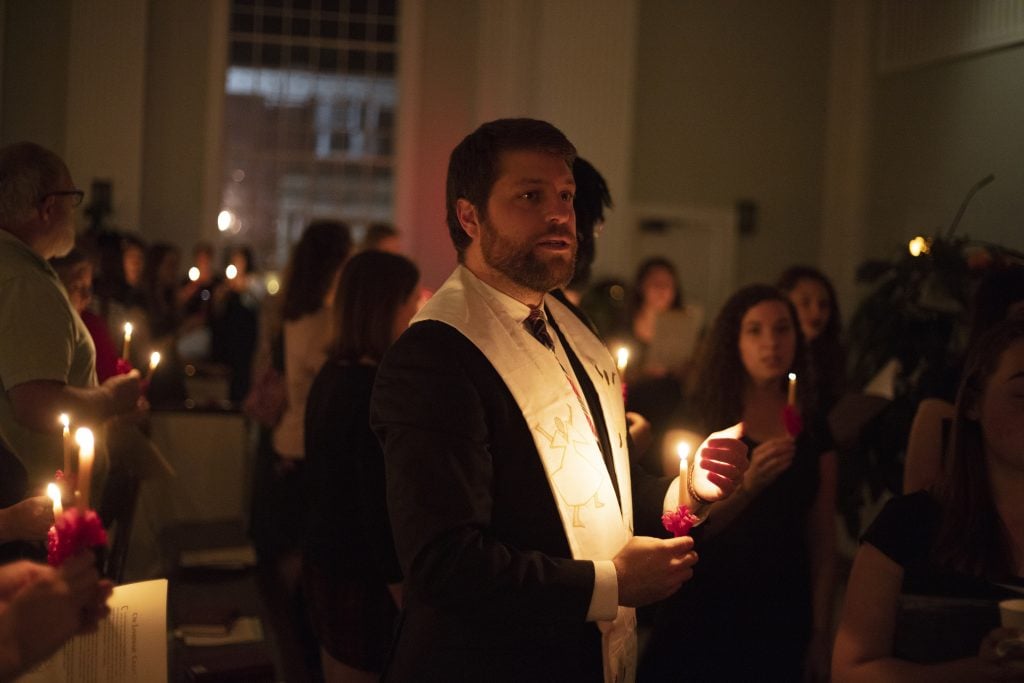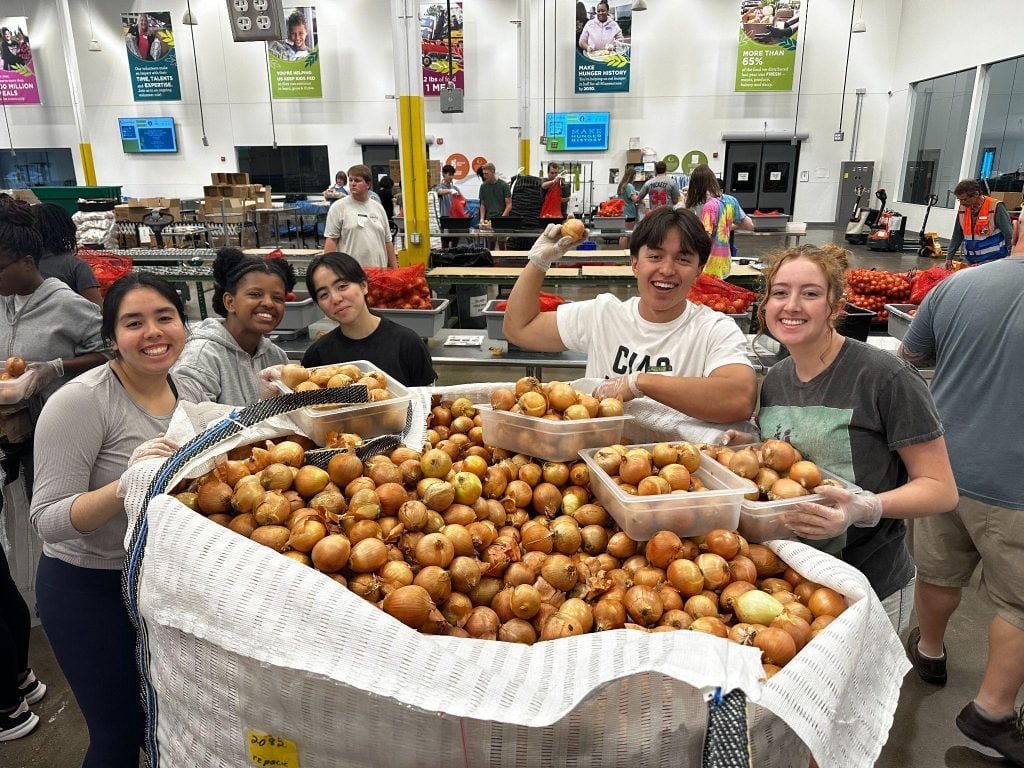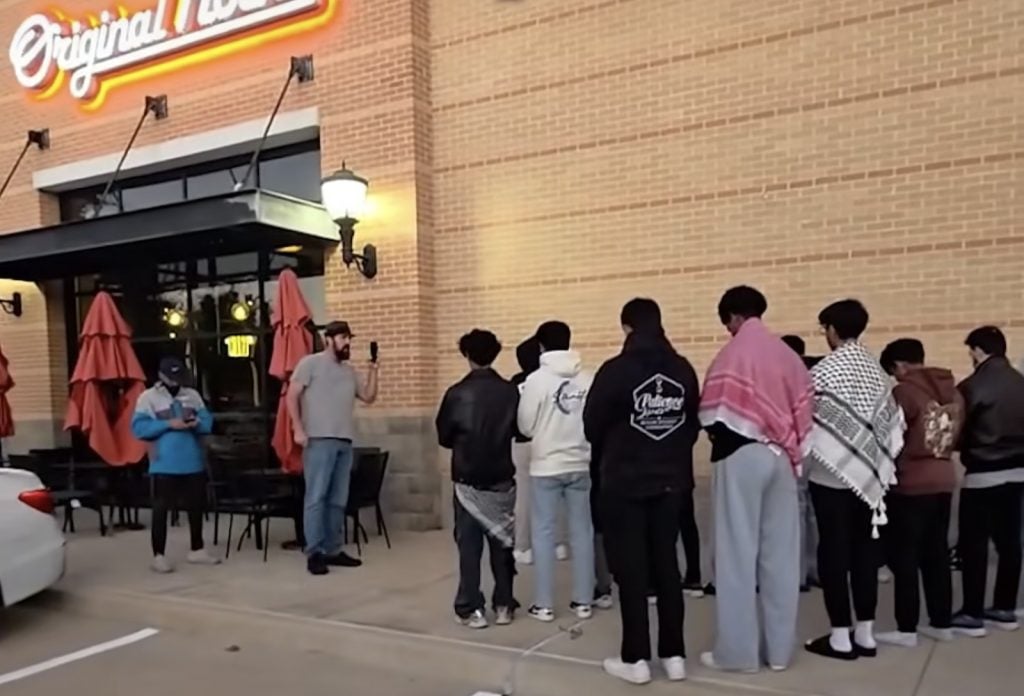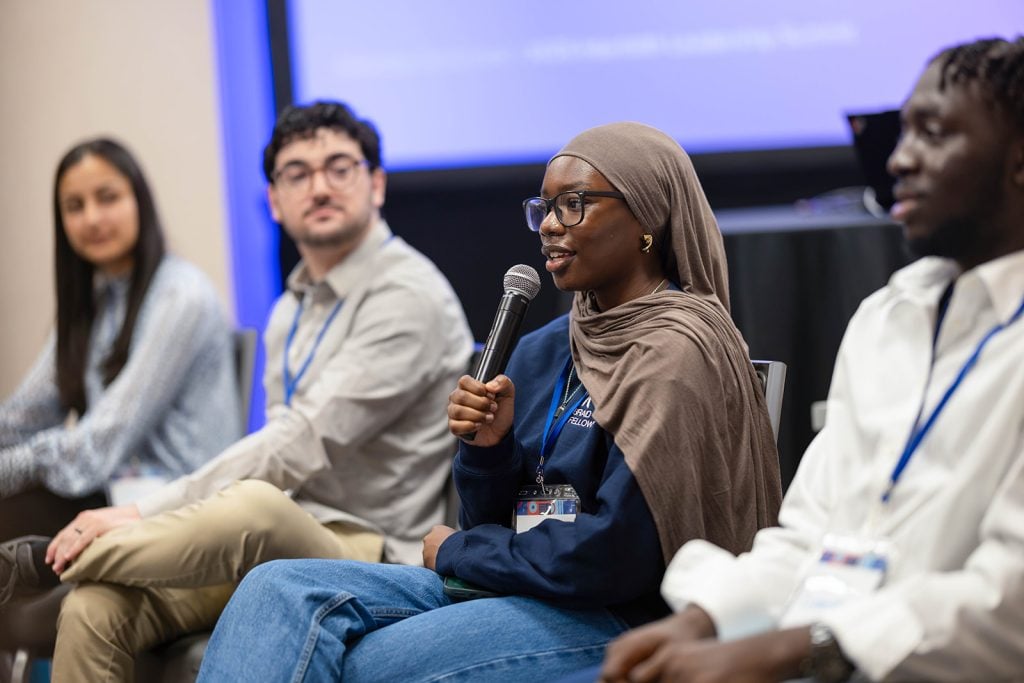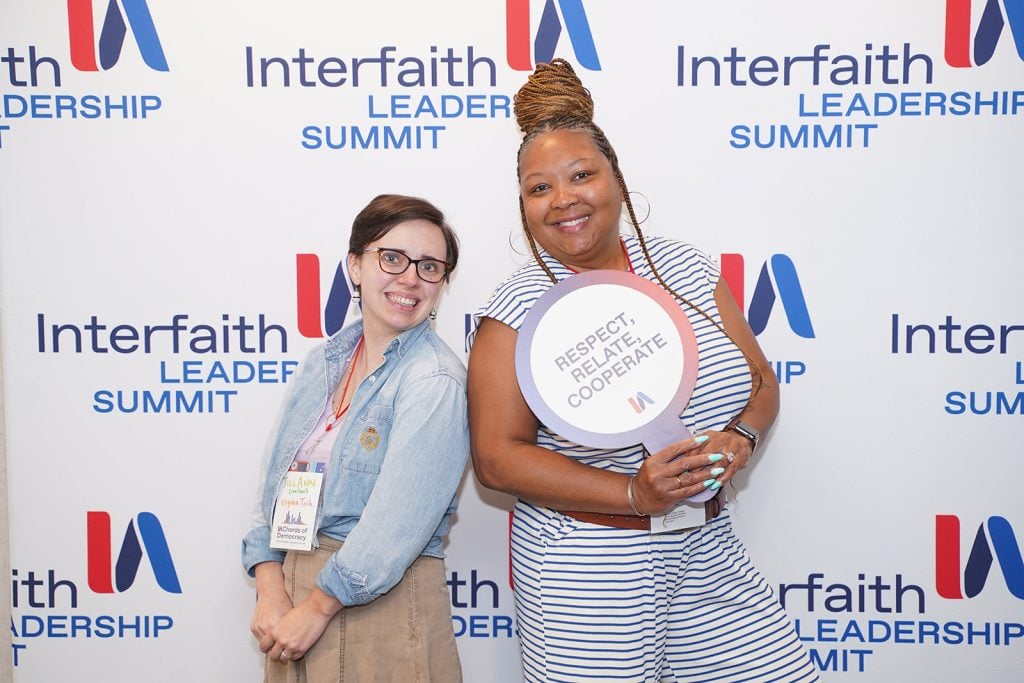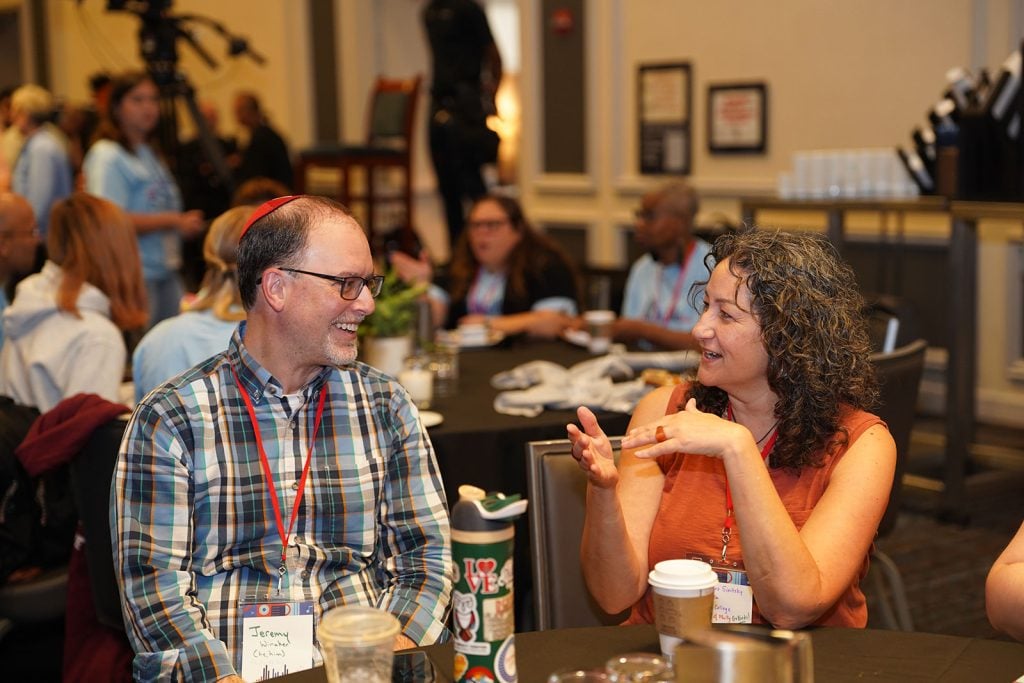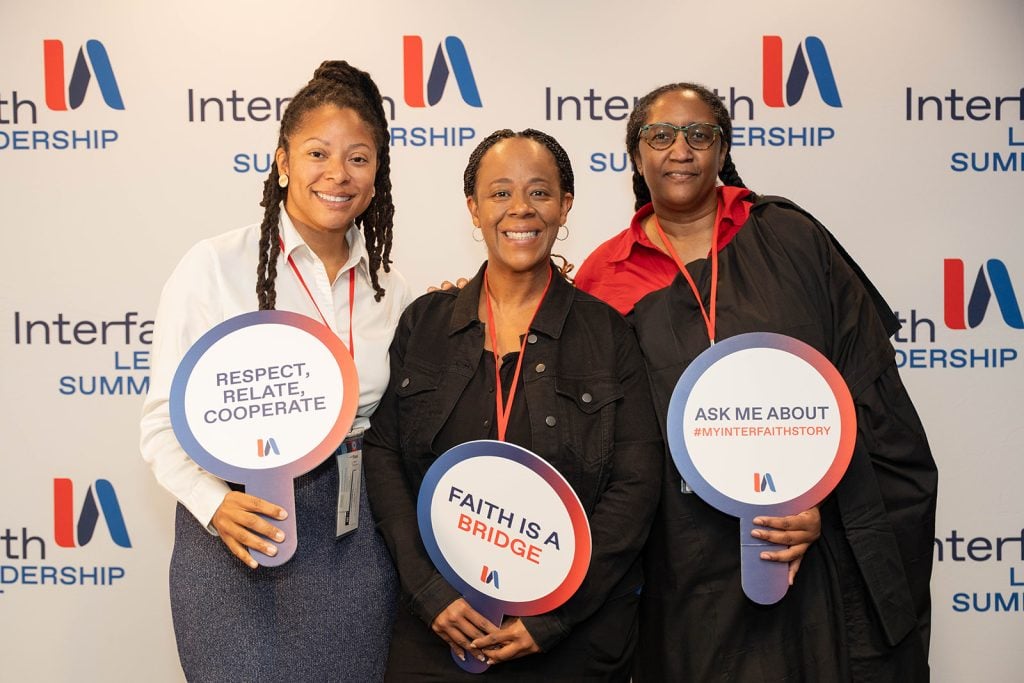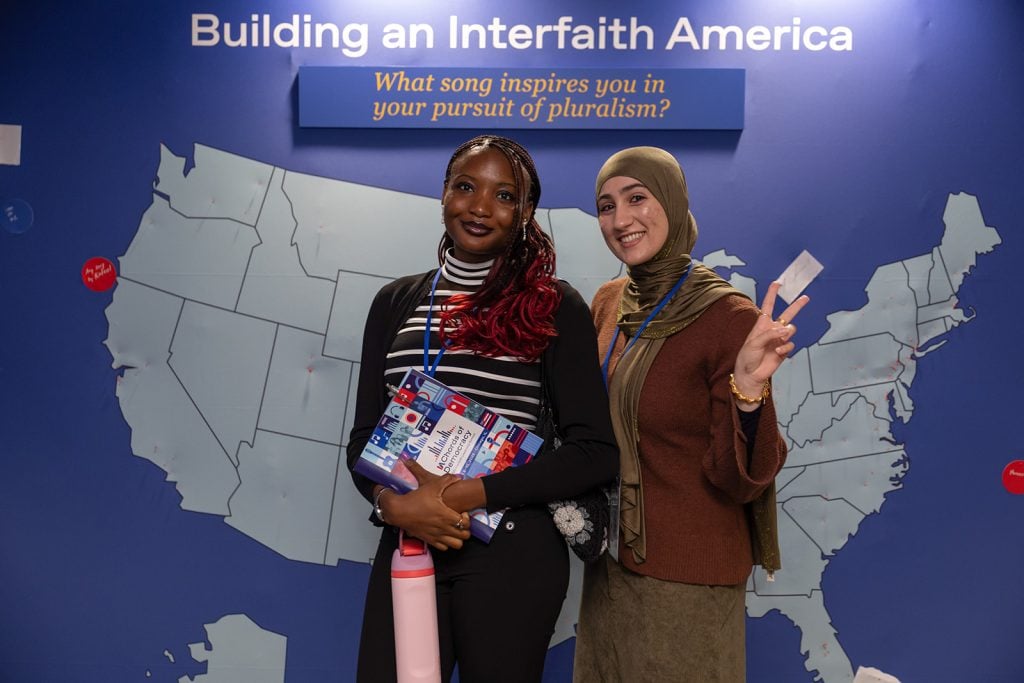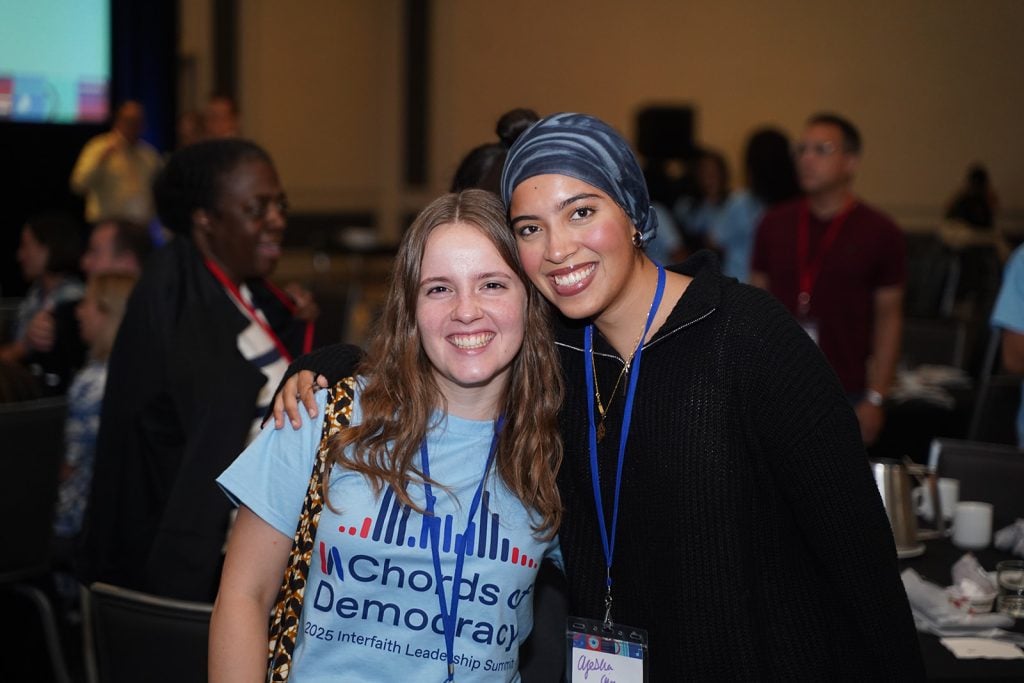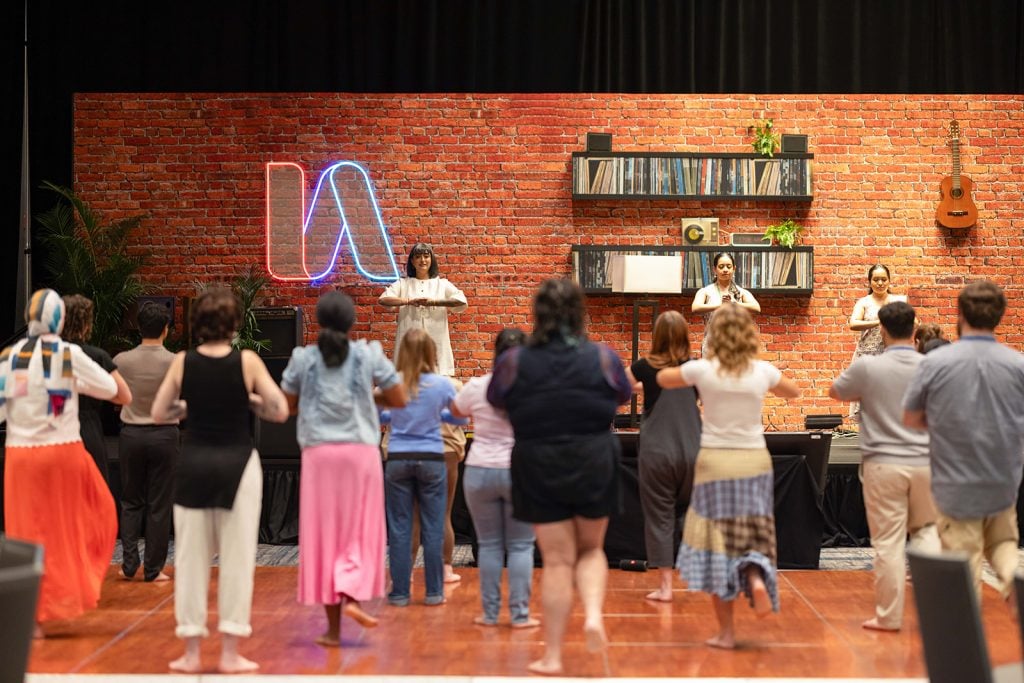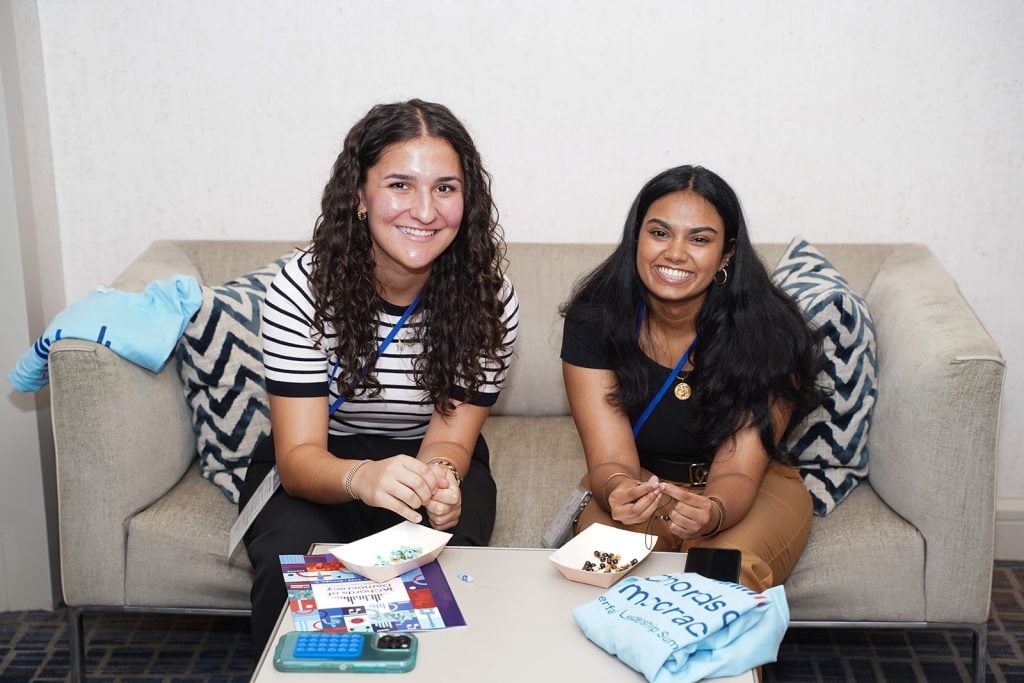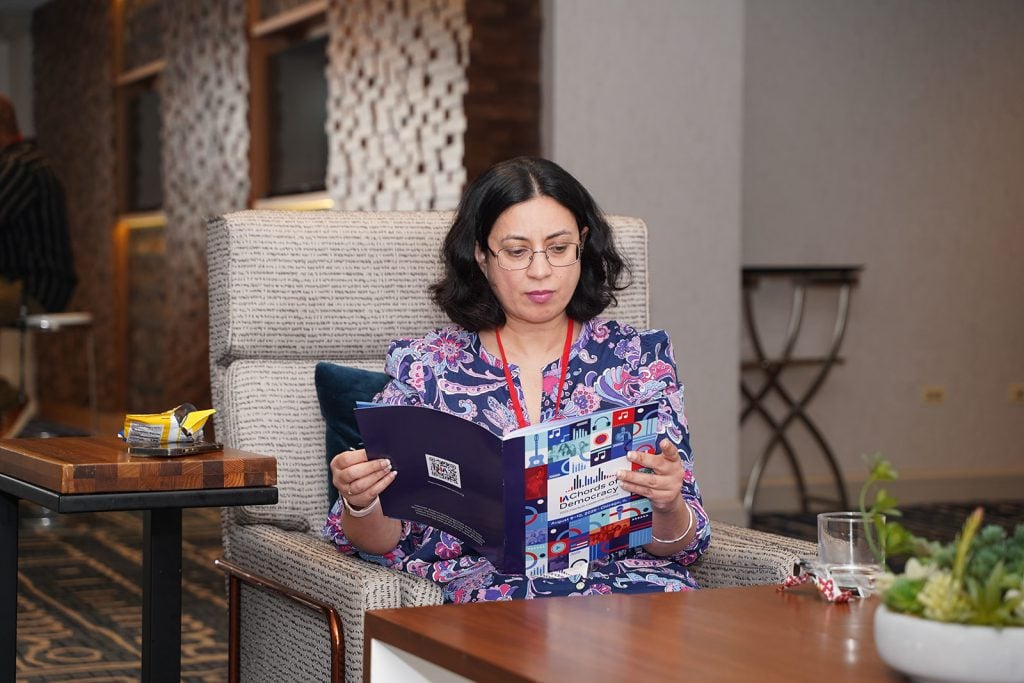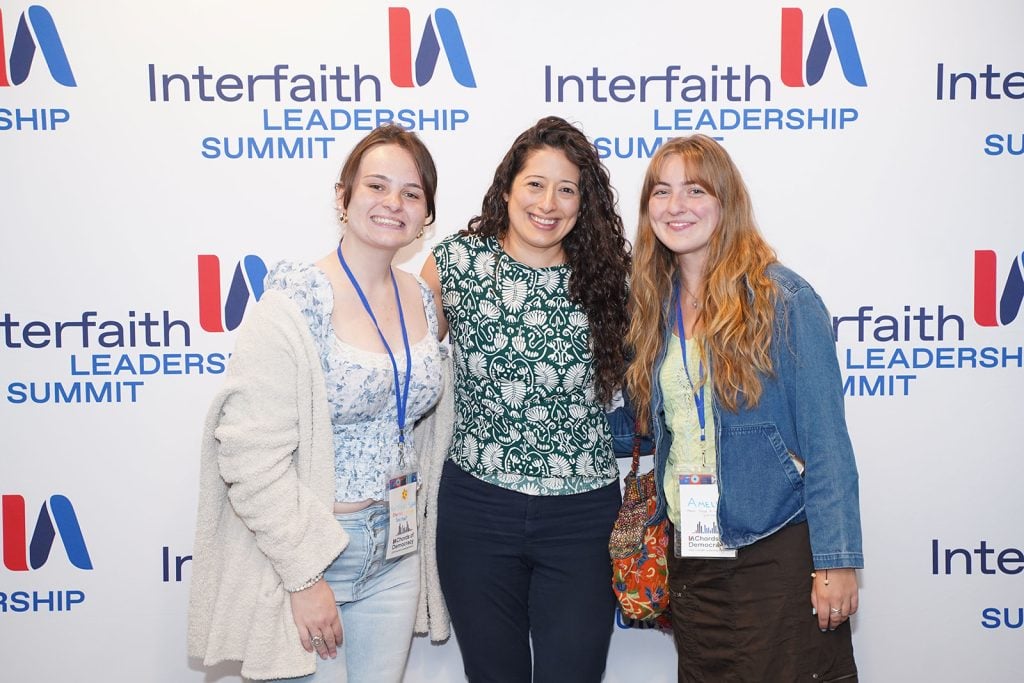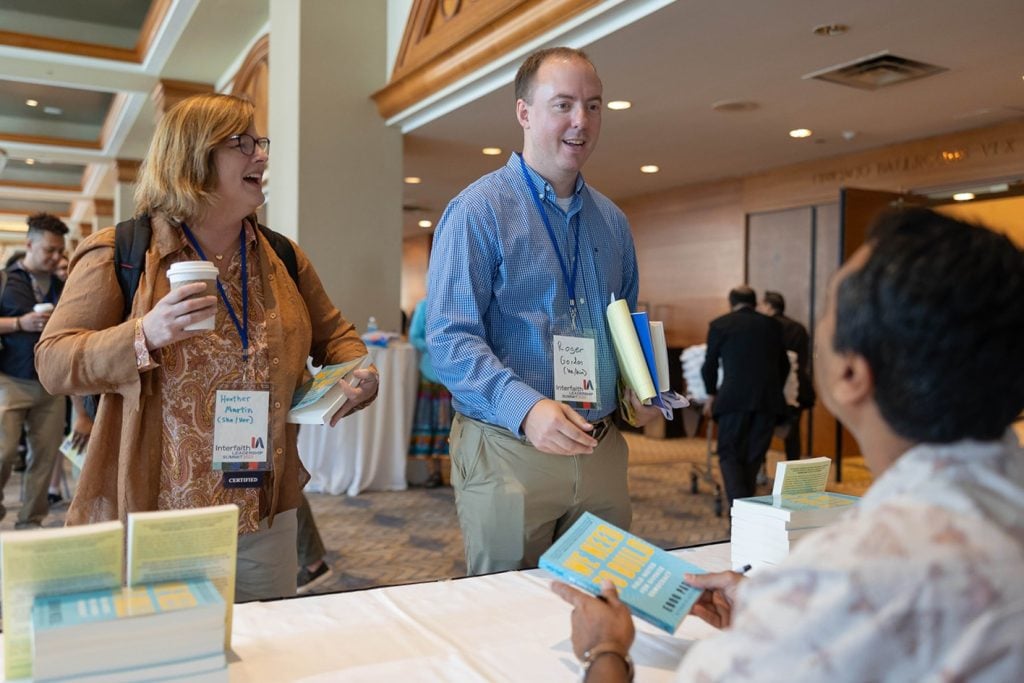In the wake of elections, there are scores of analyses and proffered insights on how the results speak to the future of the country and its democracy.
This year, what looked to be razor-thin margins and minuscule measures in swing states shifted the media’s focus to a range of demographics among the U.S. voting-eligible populace and how they could sway the election one way or another.
This included a wide range of “swing faith” voters — religious actors from a range of traditions who could push the polls in favor of one party or another. Covering several of these communities in recent months, and breaking down the data and demographics among different faith groups across the U.S. for ReligionLink, I found myself wondering (with many, many others) what it all means for the U.S.’s diverse, interfaith democracy in the decades to come.
Swing faith voters?
In the lead-up to the 2024 elections, white Christian nationalists and “MAGA evangelicals” were sucking up a lot of the air in the religion media space. And for good reason. As Tobin Miller Shearer of the University of Montana wrote for The Conversation:
In the 2016 race, evangelical voters contributed, in part, to Republican nominee Donald Trump’s victory. Those Americans who identified as “weekly churchgoers” not only showed up at the polls in large numbers, but more than 55% of them supported Trump. His capture of 66% of the white evangelical vote also tipped the scales in his favor against his Democratic rival, Hillary Clinton.
In the aftermath of this year’s election, white evangelicals once again backed Donald Trump in a big way. For the third election cycle in a row, Trump performed well with white evangelicals, garnering 81% of their vote, according to NBC News exit poll data. Compare that to just 64% of Protestants overall and 60% of white Catholics (and 56% of Catholics overall). In other words, white evangelicals remain a sizable, and reliable, voting bloc among MAGA Republicans.
At the same time, religious Americans from other backgrounds and traditions, whom Bob Smietana and Jack Jenkins of RNS called “swing state faith voters,” also shaped the election, leaving us much to consider in the wake of the results. Throughout 2024, I was able to cover a broad range of those voters. People who, motivated by their faith and spiritual convictions, decided to vote one way or another in order to shape the U.S. and its democracy for years to come.
Beyond Gaza, a shift among Muslims
When several Muslim leaders stood on stage at a rally for Republican presidential candidate Donald Trump in Michigan in late October, it sent off alarm bells in various sectors of American politics.
Loyal to Democrats in the last few elections, Muslim voters felt torn about their vote in 2024, unhappy with both parties’ support of Israel in its ongoing Gaza War and aggressive attacks on Lebanon and Iran. Frustrated, the so-called “Muslim vote” splintered, with the U.S.’s estimated 3.5 million Muslims abandoning the Democrats in favor of Republicans or to support third-party candidates such as Cornel West or Jill Stein — or to not vote at all.
Autumn polls from the Council on American-Islamic Relations (CAIR) focused on the presidential race showed that less than half of U.S. Muslims planned to vote for Harris, with more looking to Green Party candidate Jill Stein; and while Trump trailed with an average around 10%, even that number was an improvement on 2020 results.
In the end, according to Fox News Voter Analysis, Muslim voters (who accounted for just 1% of the overall count) backed Harris at a rate of 63%, with 32% voting for Trump. According to CAIR’s exit poll data, Green Party candidate Jill Stein received 53% of the Muslim vote, followed by President-elect Donald Trump with 21% and Vice President Kamala Harris with 20%.
In either case, when compared to results in 2020, these numbers reveal a significant shift. A poll from Emgage and the Muslim Public Affairs Council, found that Muslims voted overwhelmingly for Joe Biden in 2020, with 86% supporting the President and just 6% voting for Donald Trump. Comparing those numbers, 2024 was a reckoning for Democrats among American Muslims, with a significant drop in support matched with pickups for Republicans and other parties. Though this is not nearly as bad as polls like CAIR’s predicted, many point to the Biden White House’s approach to the Gaza War as a prime factor in the shift.
Gaza was not the only issue that drew Muslim voters away from Democrats, as I found out reporting from the seaside city of Tampa, Florida earlier this year. As I reported in July, the third coast city’s Islamic infrastructure is rapidly expanding and dynamic, inspiring some to call it the “new Dearborn” — referring to Dearborn, Michigan, the first Arab-majority city in the U.S. and home to the largest mosque in North America. If that were not surprising enough, what I also discovered is how the Tampa Muslim community’s mix of progressive values and social conservatism makes it an outlier in the U.S.’s polarized ideological landscape.
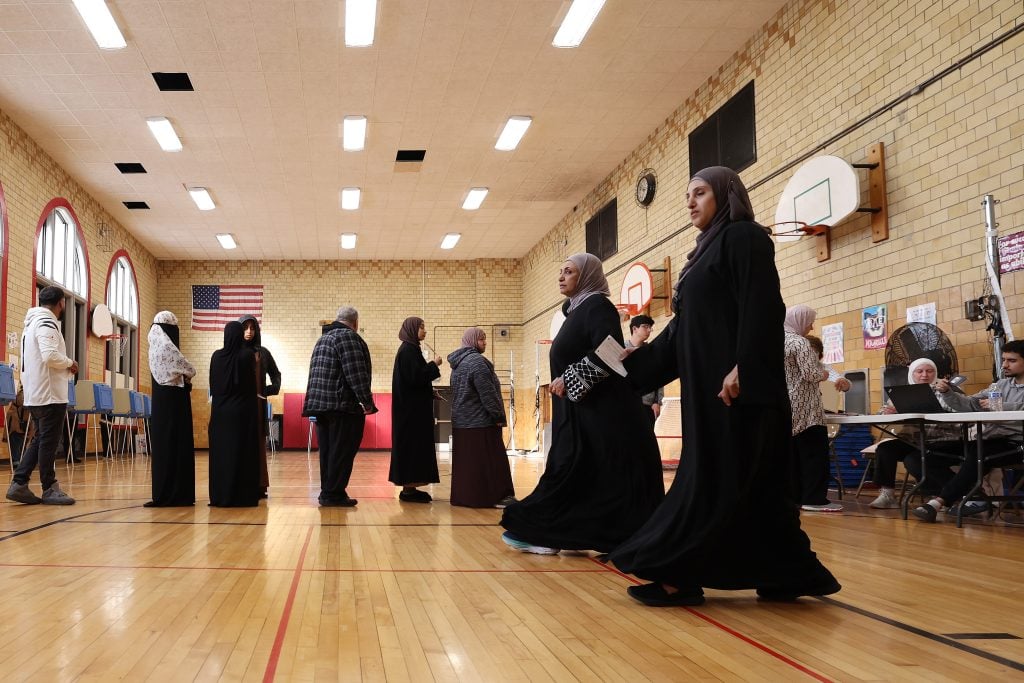
According to data from CAIR Florida and from interviews I conducted with a broad swathe of local Tampa’s Muslims, their community’s political character is increasingly purple. CAIR data shows that nearly half of Muslim voters in Florida are more likely than ever to register as independents (45%), with just 38% identifying as Democrats and 11% as Republicans. The tendency for this group to lean independent comes from their two-party-system-defying political perspectives on a range of hot-button issues.
For example, when it comes to issues like legalizing marijuana or transgender access to bathrooms, the vast majority are against (68% and 79% respectively, according to CAIR Florida’s own 2023 community survey), aligning themselves firmly with the Republican voting bloc. But then, on civil rights issues, environmental concerns or the criminal justice system, Muslims are more likely to align with Democrats.
Whether it be their deep desire to see a cease-fire in Gaza, to protect what they feel to be their parental rights, or to push for other causes like racial justice or local reform, Muslims — in Tampa and across the U.S. — are increasingly ready to use their numbers and know-how to get things done according to their faith-infused convictions, without fealty to any party. Now, they feel, is their chance to effect real change.
Latino voters also feeling torn
But Muslims in Tampa are far from the only demographic feeling torn about America’s political future. As I reported on immigration from Sojourners this year – telling stories from Wisconsin and Texas, California and Arizona – I spoke with Latinos of faith about their perspectives on the issues.
Though immigrants in the U.S. come from different backgrounds and faith traditions, 44 % of U.S. immigrants (a total of 20.4 million) identify as “Hispanic” or “Latino.” And worldwide, Christians make up almost half (47%) of the total number of people on the move.
So, it felt salient to speak with Latino Christians about one of the most contentious issues in this year’s election cycle, with both Democrats and Republicans promising a crackdown on the number of undocumented immigrants already living in the country and people coming across the U.S.’s southern border.
As I spoke with a broad array of Latino Protestants, I found them torn between their economic standing, immigration background, theologies that emphasize respect for the rule of law, a cultural emphasis on the family, allegiances to denominations that encourage support for conservative candidates, and their own personal trajectories and family stories.
In my interviews, I found Latinos do not always support candidates with progressive immigration policies — including policies that expand legal pathways to citizenship, enforce fewer penalties for those who immigrate without documentation, or end sanctions that devastate economies and fuel immigration.
That reporting confirmed how Latino Protestants are more politically diverse than often given credit, according to a August 2024 report from the Public Religion Research Institute. Although they narrowly favored President Barack Obama over Republican Mitt Romney in 2012, the majority of Latino evangelicals supported Donald Trump in 2016 and 2020.
Samuel Rodriguez, president of the National Hispanic Christian Leadership Conference, told NBC News the Latino evangelical community “is the most independent voting constituency in America — we can’t be married to either party … The donkey and the elephant can never control us or define us.”
When Democrats look at what went wrong this year, they are going to be looking at their efforts among Latinos. The Harris campaign worked hard to gain ground with Latinos, and failed. Vice President Harris finished with just a slim majority of support from Latinos, at 53%, with Trump claiming 45%, a 13-point increase from 2020 and a record high for a Republican presidential nominee, according to NBC News.
But among Latino Protestants, results were even worse for Democrats. Though Latino Catholics and non-religious Latinos lined up behind Harris — with 58% and 70% respectively — a majority of Latino Protestants voted for Trump once again, with 57% supporting the president-elect and only 40% voting for Harris, according to Fox News.
As Latino Protestants now comprise up to 7% of the U.S. population — with particular concentrations in the Southwest and West — their voices, as varied as they are, are increasingly important to listen to on a range of issues, including, but not limited to, the economy, immigration and conservative cultural and theological values, that may see them rally behind Republicans more in the years to come.
The religious “no” vote
According to data from the University of Florida’s Election Lab, around 87 million voting-eligible Americans sat this election out. Among them were numerous voters of faith who abstained from participating in the election for religious reasons.
Amidst all the partisan zealotry coming from voters of faith, I also had the chance to speak to a diverse group of folks in the U.S. who take a different approach — including many who do not vote for religious reasons.
I spoke with thought leaders like John D. Roth and Michael Budde — the former Anabaptist, the latter Catholic — who drew from pacifist traditions within Christianity to call for abstentions from voting. I spoke with Salafists and other Muslims who either felt voting is haram (forbidden) or whose frustrations over politicians’ handling of the Gaza war left them with little choice other than to sit this election cycle out. I also talked with members of the Bahá’í faith who vote, but do not partake in the “poisons” of partisanship as a spiritual rule.
Their perspectives, though springing from different sources and not necessarily mainstream, speak to a broader sentiment of exasperation among American voters this year. The sense among many voters of faith (and no faith at all), said Michael Budde, is that the system is “rigged.” In the end, Budde said, a lot of voters are starting to wonder if their vote matters.
Though unlikely to sway the election one way or the other, the religious “no” vote, if you were to call it that, makes for a different kind of “big tent coalition”: one where voters of various faiths are either inspired — or decidedly uninspired — to eschew the polls and sit out the election as a matter of conscience.
Swing faith voters and the “Big Sort”
For seasoned religion reporter Bob Smietana of Religion News Service, this election made longstanding trends in the U.S. religious, cultural and political landscape more evident. On the one hand, there is the ongoing re-organization of American religion, which is becoming more diverse and divergent in terms of identification and practice.
On the other hand, and related to the above, is the tendency for those differences to metastasize and fossilize into divergent communities with little to nothing to do with one another.
Smietana, who together with his colleague Jack Jenkins broke down important faith voter demographics in various swing states back in June 2024, said he noticed how most states have become “enclaves of folks that for the most part think and vote the same way and share similar views about faith.” Only a few swing states — like Pennsylvania, Michigan or Wisconsin — show the diverse nature of American religion and politics, Smietana said.
In those states, no one group dominates. Hence, electoral results are up for grabs. And various religious communities might be able to sway the election in one way or another.
The survey also revealed how voters in the U.S. — regardless of faith — want to live by and socialize with folks who look like them, vote like them and believe the same things they do. This, Smietana said, is the result of what fellow journalist Bill Bishop called the “Big Sort,” in which Americans have divided more and more into homogenous communities of interest over recent decades, whether geographic or virtual. This not only holds true in terms of political preference, but according to other markers of identification, including race and religion, with siloed subgroups becoming increasingly like-minded and ideologically inbred. The result is a shared, and intensified, difficulty to comprehend people who think, act, believe, or look differently than “Us” — the social, political, cultural or religious “Other.”
“This election shows that Americans really live in two different universes — one that is very Protestant, conservative, and more traditional in its ideas about sex and marriage and social norms (mostly in Red States) and one that is more diverse, secular and progressive (think Blue states),” Smietana said, “and those two universes have different assumptions about what it means to be an American and how society should be run.”
The big interfaith question
The big interfaith question, Smietana surmised, is whether American religious values that focus on the common good — and common ground — are strong enough to bridge those divides. Or, if the challenges of diversity and difference in U.S. democracy will continue to threaten the threads of society.
To read the above would be to see the proof of the prophetic pudding about polarization in the U.S. these days. There are acute, and aggravated, differences between Americans of various political, cultural, and religious identifications. And amidst this diversity and difference, there is a concomitant, and intensifying, tendency to associate the “Other” with threats of evil and dystopian visions of the future.
But as I reflect on my reporting over the last year — and read through work by colleagues covering religion in the U.S. — I was encouraged to see the attention given to a wider array of voices. I noted that voting and civic participation was, once again, rooted in diverse faith traditions. I followed along as multiple outlets fore-fronted the practical ways various traditions and communities are coming together to participate in our democracy.
I also saw a range of new combinations, diverse coalitions and emerging alliances that point to the possibility of finding common cause. Those may be causes we personally do not agree with, but they point to the vitality and vibrancy of our diverse, participatory democracy. And, perhaps, they hint at the possibilities of finding points of agreement in the future.
This is the story I will be tracking in the months and years to come.
Whatever else, the future of American democracy promises to be increasingly diverse — so long as we protect it. As both a journalist concerned with contemporary trends and as a U.S. citizen committed to a democracy that thrives on its diversity, I am looking forward to the stories of civil dialogue, bridging divides and civic pluralism that the U.S. and its peoples have yet to write.
Ken Chitwood is a religion nerd, writer and scholar of global Islam and American religion based in Germany. His work has appeared in Newsweek, Salon, The Los Angeles Times, The Washington Post, The Houston Chronicle, The Chicago Tribune, Religion News Service, Christianity Today, and numerous other publications. Follow Ken on Twitter @kchitwood.

